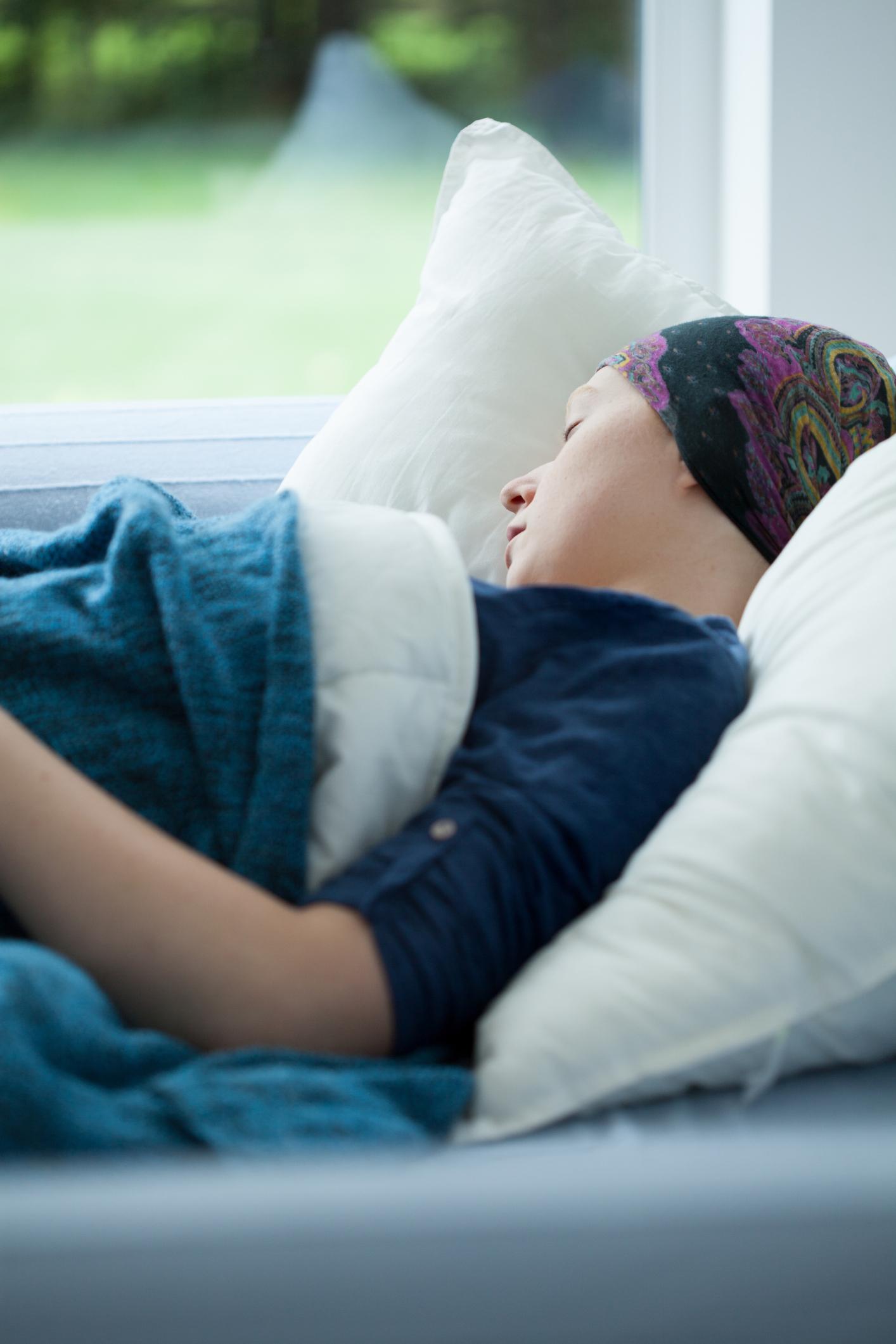Two studies published late last week discuss COVID-19 infection in cancer patients, with one tying an undetectable SARS-CoV-2 antibody response after vaccination to greater risk of breakthrough infection and hospitalization, and the other finding that vaccination can activate T cells for a more durable immune response in patients with two types of blood cancer.
3 vaccine doses better than 2
In England, a team led by University of Oxford researchers analyzed 4,249 SARS-CoV-2 antibody test results from 3,555 adult cancer patients and 294,230 results from 225,272 people without cancer after completion of a primary COVID-19 vaccine series from Sep 1, 2021, to Mar 4, 2022. The research was published in JAMA Oncology.
Median cancer patient age was 40 years, while it was 49 among noncancer patients, and their respective proportions by sex were 61.2% women and 38.8% men. Most results (93.7%) were from White participants.
Of the tests from cancer patients, 2,313 were conducted after a second vaccine dose, and 1,936 were done after a third dose. Among the general population, 230,417 tests were conducted after a second dose, and 63,813 were done after a third dose.
Relative to the general population, cancer patients were more likely to have no detectable antibodies to the SARS-CoV-2 spike protein after at least two vaccine doses (4.7% vs 0.1% of test results). Leukemia and lymphoma patients had the lowest antibody concentrations. After adjustment, patients with no detectable SARS-CoV-2 antibodies were at much higher risk for breakthrough COVID-19 (odds ratio [OR], 3.05) and hospitalization (OR, 6.48) than those with detectable antibodies.
In both groups, recipients of a third vaccine dose had significantly higher antibody levels than two-dose recipients (11,146.5 vs 8,765.0 units per milliliter [U/mL] in the cancer group and 23,667.0 vs 12,126.0 U/mL in the general population).
In subgroup analyses, undetectable antibody responses were seen in 19.2% of test results for patients with blood cancer and 4.2% of those for patients with solid tumors. Patients with blood cancer had significantly lower antibody concentrations than those with solid tumors (1,872.5 U/mL vs 16,165.0 U/mL). Patients with leukemia or lymphoma had the highest rates of undetectable antibody responses and the lowest antibody levels, and those with stage 4 cancers had significantly lower antibody levels.
Patients who had received anticancer treatments had lower median antibody concentrations than nonrecipients (8,131.0 U/mL vs 15,443.0 U/mL). Antibody levels weren't different in patients who had received radiation and those who hadn't.
In the cancer group, 259 patients had breakthrough COVID-19, and 55 were hospitalized after their antibody test, but none died. Cancer patients hospitalized for their infections had significantly lower median antibody levels than outpatients (147.0 U/mL vs 10,961.0 U/mL). Likewise, cancer patients who had breakthrough infections had significantly lower median antibody concentrations than their uninfected counterparts (2,699.0 U/mL vs 10,961.0 U/mL).
"Further expansion of antibody testing to prioritize measures, such as preexposure prophylaxis, vaccination boosters, and early treatment programs, may help mitigate the direct impact on this group as well as the indirect impact arising from delays to effective cancer care," the study authors wrote. "Ongoing caution by patients is warranted regardless of antibody response in view of waning long-term immunity and new variants."
Further expansion of antibody testing to prioritize measures, such as preexposure prophylaxis, vaccination boosters, and early treatment programs, may help mitigate the direct impact on this group.
In a related commentary, Michael Hoerger, PhD, MBA, of Tulane University; James Gerhart, PhD, of Central Michigan University; and Maria Swartz, PhD, MPH, of MD Anderson Cancer Center, cautioned that vulnerability to infection is dynamic and depends on vaccine effectiveness over time and evolving variants. They added that the path to immunity remains complex and variable.
"Moreover, reinfections increase health risk, and the cancer types most vulnerable to initial infection may differ from those most vulnerable to repeat infection," they wrote. "New vaccines and the timing and combination of vaccine types may differentially reduce vulnerability. Patient subgroups may vary in their vulnerability to different outcomes. These uncertainties suggest the need to consider more universal precautions."
Response in lymphoma, myeloma patients
In Germany, University of Freiburg researchers led a study of the immune responses of 60 COVID-naïve patients with the blood cancers B cell lymphoma or multiple myeloma who had received three COVID-19 vaccine doses. The study was published in Nature Cancer.
Participants were followed from before their first vaccine dose in spring 2021 to about 41 days after their third dose, up to January 2022. All patients except two were in remission. Their results were compared with those of 60 healthy matched healthcare workers.
Almost all participants marshaled strong T cell responses to the spike protein of the Delta and Omicron variants. "We conclude that COVID-19 vaccination can induce broad antiviral immunity including ultrapotent neutralizing antibodies with high avidity in different hematologic malignancies," the researchers wrote.
This finding could be why breakthrough infections were mild or moderate, "even in study participants who had been unable to form any specific antibodies after vaccination because of their therapy," co-lead author Christine Greil, PhD, of the University of Freiburg, said in a Ludwig-Maximilians-Universitat (LMU) Munchen news release.
In addition, the antibodies produced were of high quality, meaning that they could neutralize the variants after the second vaccine dose. This ability was much more apparent among the cancer patients than among their healthy vaccinated counterparts.
"Consequently, multiple vaccine doses can be recommended for patients with B-cell lymphoma or multiple myeloma without interrupting therapy," senior author Oliver Keppler, MD, of LMU, said in the release.



















